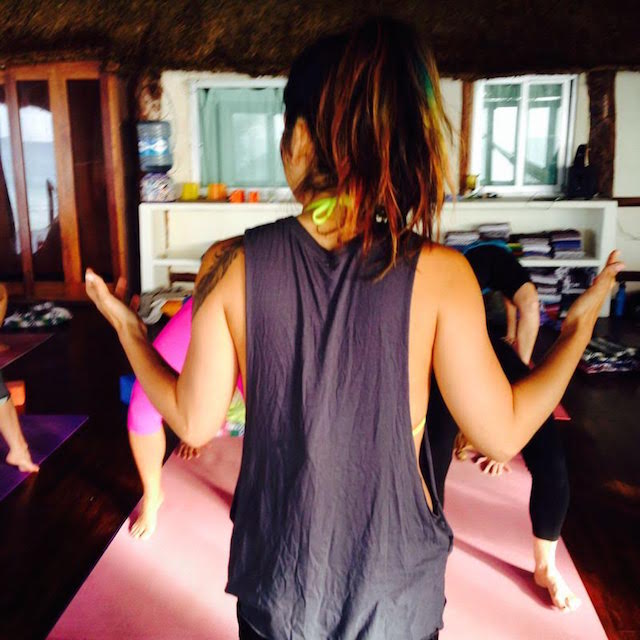
Have you ever heard someone say “if you’re starting yoga, you have to go to the right teacher”?
What does that mean anyway?
Is it the one who’s most experienced? Who has the right style? Is it the one who you hear about most? The one who has the most Facebook likes?
I myself have experienced yoga classes with many many teachers from around the world. Some I liked, some I avoided with a passion, others I questioned but kept going, and still others about whom I became religious.
For me, it was never about the number of years of their teaching experiences. Sure, it’s nice to know that they have graduated from a certain yoga school, completed the basic required hours and perhaps even more qualifications. But I don’t care if they are vegans, or mascots of certain jewelry or clothing, and I really don’t care if they have a following on Instagram.
Instead, this is what I inquire about:
1. Do they have their own meditation practice of some sort?
Be careful if they beat around the bush and make statements like “I meditate on the way to class” or “my meditation is every day life.” Do they have a dedicated time specifically to watch their minds, whatever that means? And not a sporadic, multi-tasking kind of meditation.
Ask questions about how they practice observing their own minds. Often, this can be observed by what they say (in their own words) in class, on Facebook statuses, and in their interaction before and after the class with students. But if, after that, you still can’t tell, ask.
2. Do they have their own asana (posture) practice?
Sure, everyone has a busy life. They don’t have to have an everyday 90 to 120 minute practice, but it’s important that they practice what they teach. Be careful—this has nothing to do with “advanced” poses they may demonstrate in class, or social media.
Is there a constant inquiry in their asana practice? You can observe this by going to two to three classes of theirs. Some teachers get lost in their schedules just like the rest of us. (Some teach over 20 classes a week and you have to wonder when they actually practice yoga asana.)
3. Honesty.
When you ask questions, and if they don’t have the answer, do they have the ability to say “I don’t know. Let me look into that.”? If they give you long, vague answers, maybe they don’t actually have answers, and just won’t admit it.
The main concern is safety. As a yoga teacher, I have turned away many students out of my concern for their safety and I have no problem doing so. If the class is going to be a full-on vinyasa and the students have just finished their scuba diving sessions, I will ask kindly to return the next day.
Where I teach, many travelers have had recent scooter accidents, diving sessions, and many more experiences during their travels. If I feel concerned for their safety, I will ask them to see a doctor or come back the next day.
4. Do they have intentions to connect with students?
Have you ever been to a concert? I went to a well known musician’s concert years ago. We were so excited. When we got there, he stood in the center of the stage and played his latest songs, but the only thing he said to the audience was “hello.” There was no conversation between him and his audience—like he was just introducing some songs to us and we were to just sit there and listen.
In contrast, I’ve gone to a musician’s gig where he/she was not so well known but I had the best time, because there was a union between us, as the audience and musicians. I believe yoga classes work the same way. I don’t encourage teachers to “please” students but do they notice and engage with the students?
As a student of yoga, if the class you’ve tried didn’t really float your boat, try another class, even if it’s at the same studio. Even within the same lineage of yoga, each yoga teacher is unique. Talk to the teacher, ask questions and get to know them.
Some people despise the fact that there are so many yoga teacher training programs creating yoga teachers right now. I would say that it is the best time to start yoga because of the variety we have as students. Go out there and try a few classes.
Relephant Read:
Tips for New Yoga Teachers: How to Share Authentically
Author: Tomomi Kojima
Editor: Catherine Monkman
Photo: Author’s Own


 Share on bsky
Share on bsky




Read 0 comments and reply